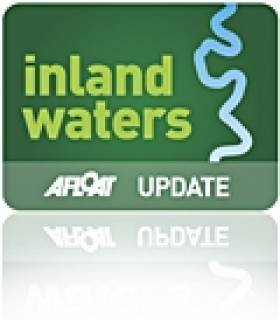Displaying items by tag: Killaloe canal
Shannon Navigation: Killaloe Canal Closing for Boardwalk Works
Waterways Ireland advises masters and owners of vessels on the Shannon Navigation that the Killaloe Canal in Co Clare will be closed from next Monday 16 October for much the winter period in order to carry out works on the boardwalk.
These works are expected take around three months, and vessels moored in the canal should vacate the area prior to Sunday 15 October. Vessels remaining after this date may be removed by the cross-border body for Ireland’s inland waterways.
Waterways Ireland Commences Work on Killaloe Canal
The works on the Shannon Navigation at Killaloe involve the repair and widening of the canal wall. Flow Control Gates will be installed in the canal and new moorings have already been put in place to provide greater capacity. A further outcome of the flow control gates is the incorporation of a pedestrian footbridge creating a looped walk along the canal. The entire walkway will be resurfaced as part of the project.
The works have been designed by Waterways Ireland and will be undertaken by a contractor. The work will commence on the 13th September 2010 and is expected to be completed in March 2011. During this period the footpath between the R463 Killaloe to Scarriff Road and the canal will be closed.
The remedial works to the canal wall include the installation of approximately 400 m of sheet piles to incorporate the extension to the moorings and underpin the existing canal wall. The installation of boat pump-out facility and new mains pump chamber has been included in the programme.
When complete three walkways will link the newly installed floating moorings to the canal wall. The 250m of floating moorings were installed by Waterways Ireland earlier in the year in preparation for this work to take place.
Waterways Ireland would like to apologise for any inconvenience caused during the contract period. Queries about this work can be directed to the Waterways Ireland Western Regional Office in Scarriff, Tel 061 922033.





























































